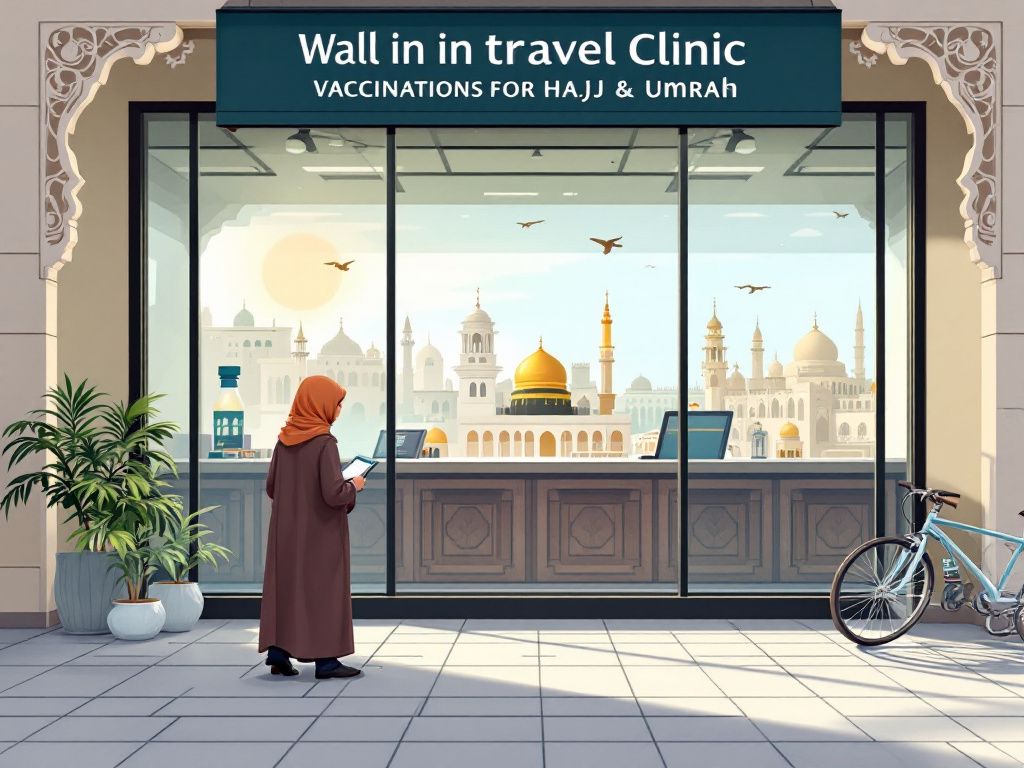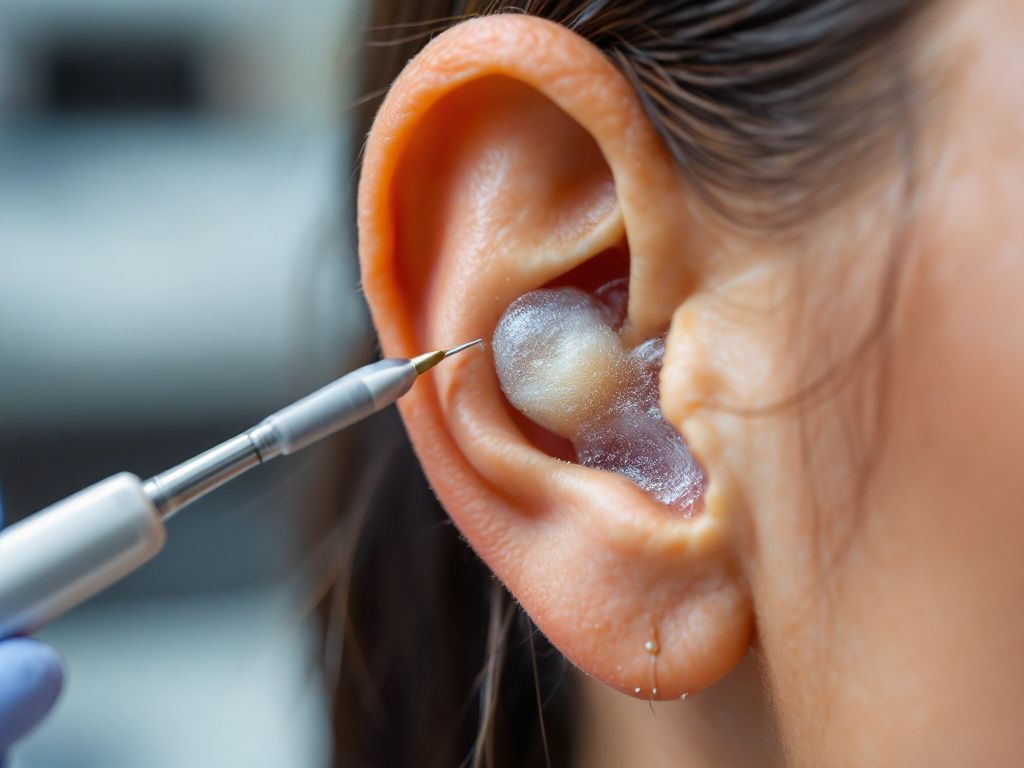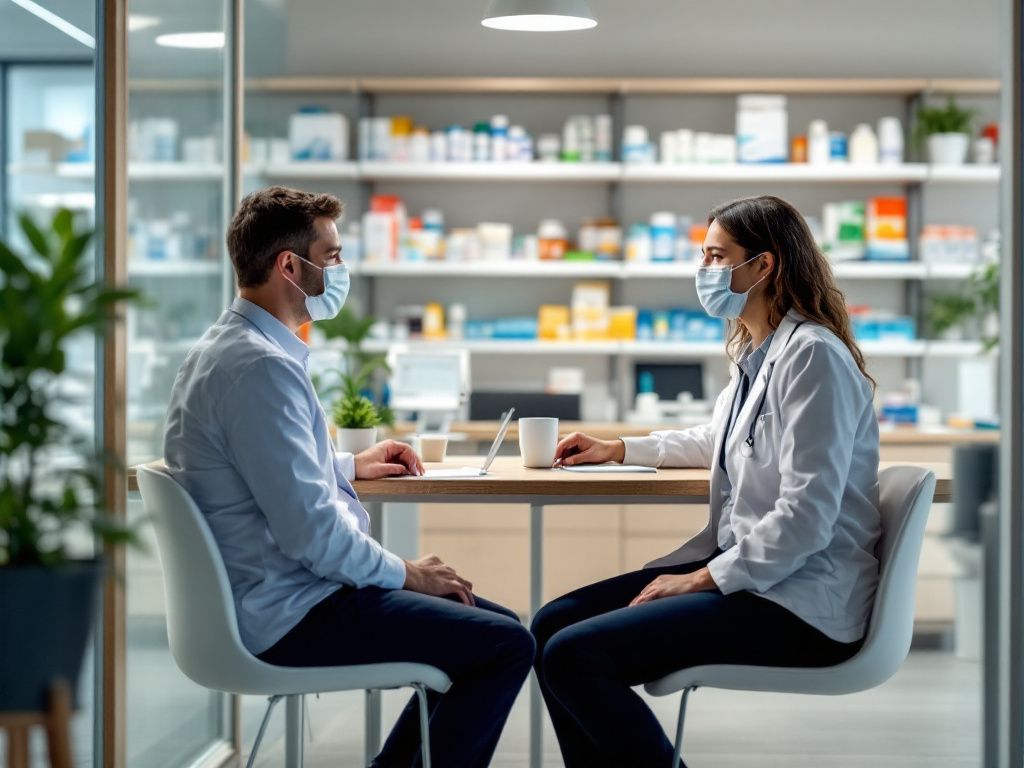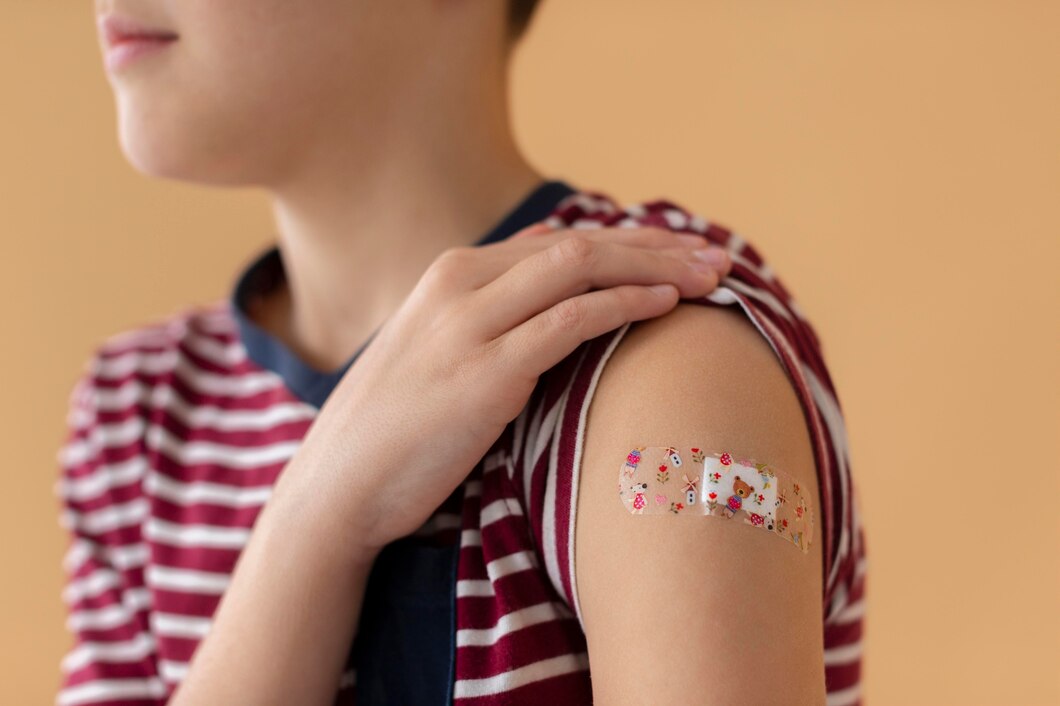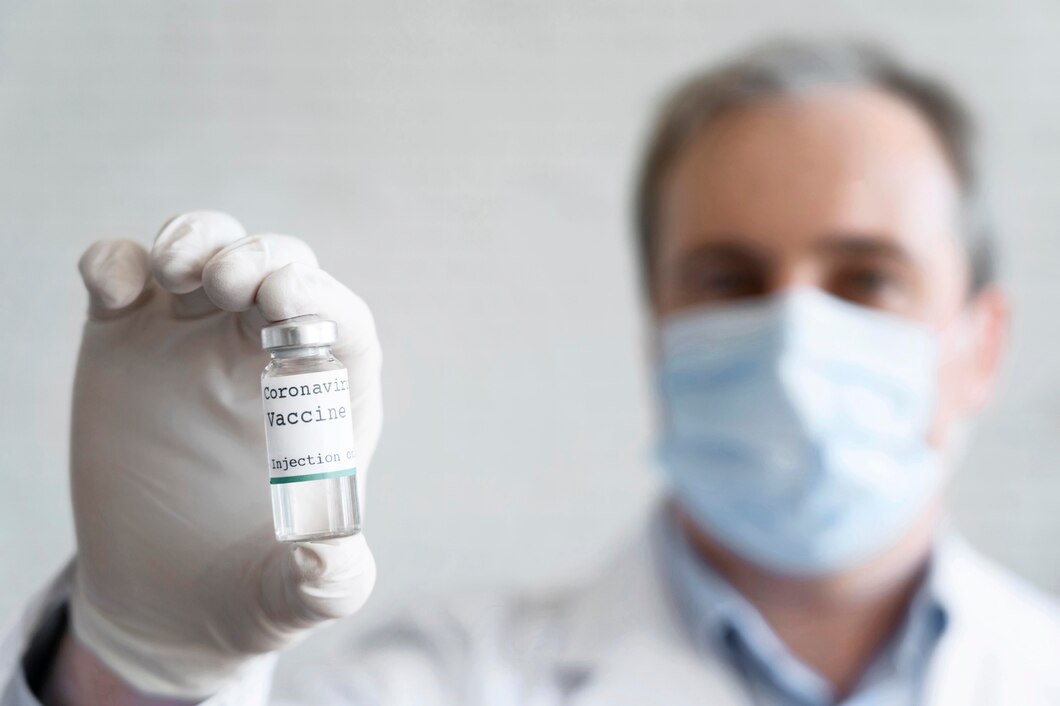Tick-Borne Encephalitis: Protecting Yourself on European Vacations The allure of Europe is undeniable, with its rich history, vibrant cultures, and breathtaking landscapes. However, amidst planning your itinerary and booking accommodation, it is vital to be aware of specific health risks that may impact your journey. Tick-borne encephalitis (TBE) is a potentially serious viral infection transmitted through tick bites, and this article is designed to provide travellers and healthcare professionals with the essential information required to stay safe while exploring European destinations. Introduction to Tick-Borne Encephalitis Tick-borne encephalitis is a viral infection that affects the central nervous system. In regions where the disease is endemic, particularly in parts of Central and Eastern Europe, the risk of exposure can be significant for those who love outdoor activities. Understanding TBE is crucial not only for travellers who may be unaware of the health risks associated with tick bites but also for healthcare professionals who provide advice and treatments in travel clinics. Understanding the Transmission of TBE TBE is primarily transmitted through the bite of an infected tick. The small arachnid, which thrives in rural and wooded areas, can carry the virus without obvious signs of illness. As tick populations expand in many regions due to climatic changes, the risk of infection increases. For most individuals, TBE starts with flu-like symptoms such as fever, headache, and general malaise, which can later progress to more severe neurological complications. Transmission Dynamics While tick bites are the most recognised mode of transmission, it is possible, though rare, to acquire TBE from consuming unpasteurised dairy products from infected animals. This knowledge is particularly important when venturing into rural areas or exploring local cuisines. Being aware of these transmission routes can influence decisions on preventive measures before and during your trip. Assessing the Risk: Who Should be Concerned? Both travellers and healthcare professionals play a crucial role in mitigating the public health impact of tick-borne encephalitis. Travellers planning outdoor adventures in areas known for TBE, such as hiking through forested regions or exploring rural landscapes, should be particularly cautious. Meanwhile, healthcare professionals should remain vigilant, ensuring travellers are well-informed about the risks, symptoms, and from where to seek prompt treatment if necessary. Key Risk Groups Individuals who frequently engage in outdoor recreational activities, such as hiking, camping, or cycling in endemic regions, are at a heightened risk. Moreover, those with underlying health conditions or a weakened immune system should take extra precautions. For healthcare professionals, keeping these risk factors in mind when consulting with patients is crucial in tailoring preventive advice and interventions. Prevention and Protective Measures Prevention plays a pivotal role in protecting against tick-borne encephalitis. Practical measures are available that significantly reduce the risk of infection. Travellers should consider both vaccination and behavioural modifications to safeguard their health during their European visits. Vaccination and its Role One of the most effective ways to counteract TBE is through vaccination. Available vaccines have demonstrated high efficacy in preventing the disease, particularly when administered according to the recommended schedule well before travel. Healthcare professionals are advised to discuss vaccination protocols with their patients, ensuring that the vaccine is appropriate based on the travel itinerary and individual health history. Practical Preventive Actions Beyond vaccination, simple but effective measures can provide additional protection. Wearing long-sleeved clothing, utilising insect repellents that are safe for use in tick-prone areas, and performing thorough tick checks after outdoor activities are all essential practices. Being vigilant about where you travel and the environments you enter can help minimise exposure and mitigate potential risks. Recognising the Symptoms and When to Seek Medical Advice Early detection and management of tick-borne encephalitis are key to ensuring a favourable outcome. Although TBE often begins with non-specific symptoms, recognising the initial signs can prompt timely medical intervention. Early Warning Signs Initial symptoms can mimic those of a common viral infection and may include fever, fatigue, and muscle aches. If these symptoms are accompanied by severe headaches, neck stiffness, or neurological disturbances, it is imperative to contact a healthcare provider immediately. Early diagnosis and supportive care are essential to prevent further complications. The Healthcare Professional’s Perspective For healthcare professionals, maintaining a high index of suspicion for TBE, especially in patients returning from endemic regions, is important. Detailed patient histories that cover travel itineraries, outdoor activities, and exposure to ticks should form part of the diagnostic process. Up-to-date knowledge about local TBE prevalence and vaccination recommendations can empower you to offer sound clinical advice tailored to individual patient risks. Planning Ahead: Preparing Your Health Strategy for Travel Travelling to regions where tick-borne encephalitis is prevalent requires careful planning. Besides researching destinations, booking a consultation with a local healthcare provider or travel clinic can provide personalised health strategies. At Wyborns Pharmacy, our private services are tailored to help travellers prepare effectively, combining expert medical advice with a suite of vaccinations and preventive measures. By adopting a proactive approach, you not only ensure your own safety but also help create a more prepared and informed community. Whether you are a health-conscious traveller or a professional dedicated to patient care, taking the necessary steps to prevent TBE is a valuable investment in your long-term well-being. Integrating Preventive Care into Your Travel Plans Health and safety are as integral to travel planning as the itinerary itself. Simple preventive actions can have a significant impact on the outcome of your holiday, ensuring that memories made are not marred by unexpected illnesses. With the right combination of vaccination, protective clothing, and environmental awareness, you can enjoy all that Europe has to offer while minimising health risks. Staying Informed and Updated Information about tick-borne encephalitis and its prevalence can change, so staying informed is essential. Check updates from reliable sources such as public health authorities and trusted healthcare providers before travelling. This up-to-date knowledge, combined with local advice, can help you navigate the health landscape effectively during your European adventures. Conclusion: Your Health Is Your Best Travel Companion Tick-borne encephalitis should serve as a reminder that health is a critical…
Read MoreHepatitis A + Typhoid Combined Vaccine: How It Works The need to protect oneself against infectious diseases is vital, especially when travelling or working in environments with higher exposure risks. The combined Hepatitis A and Typhoid vaccine offers a unique solution by providing protection against these two illnesses in one injection. This article explains how the vaccine works, its benefits, and crucial information for both travellers and healthcare professionals, all while maintaining a natural and engaging tone. Understanding Hepatitis A and Typhoid Before delving into the mechanism and benefits of the combined vaccine, it is important to understand the diseases it aims to prevent. What is Hepatitis A? Hepatitis A is a highly contagious viral infection that primarily affects the liver. It is transmitted through the ingestion of contaminated food or water and can cause symptoms ranging from mild fatigue and nausea to severe liver complications. Vaccination is the most effective way to prevent the infection, and the introduction of a vaccine has significantly reduced the prevalence of the disease in many parts of the world. What is Typhoid? Typhoid fever is a systemic infection caused by the bacteria Salmonella Typhi. It is usually contracted through the consumption of contaminated water or food. Symptoms include prolonged fever, weakness, stomach pain, and sometimes severe complications if left untreated. The incidence of typhoid is most common in regions with inadequate sanitation, making vaccination an essential measure for travellers to affected areas. How the Combined Vaccine Works The combined Hepatitis A and Typhoid vaccine is designed to simultaneously stimulate the immune system against both pathogens. This innovative approach reduces the number of injections required and improves compliance among patients, particularly travellers seeking efficient and effective preventive care. When administered, the vaccine introduces inactivated components of the hepatitis A virus and a purified antigen from Salmonella Typhi into the body. These components are carefully selected and processed to ensure they are safe while still being potent enough to trigger the body’s immune response. Once the immune system encounters these antigens, it begins producing specific antibodies that will provide long-term protection against the actual pathogens. As a result, if the vaccinated person is later exposed to either hepatitis A or typhoid, their immune system can mobilise quickly to neutralise the threat. This dual-action vaccine utilises advanced formulation techniques that not only ensure a rapid immune response but also promote durability of immunity. The result is a vaccine that is both time-efficient and highly effective, making it a preferred option for pre-travel consultations as well as routine immunisation schedules in clinical practice. Medical Considerations and Effectiveness From a medical perspective, the combined vaccine has been evaluated in several clinical trials that confirm its safety and effectiveness. Healthcare professionals have found that its dual-protection capability does not compromise the immune response to either component. On the contrary, this innovative vaccine simplifies the vaccination process and improves patient compliance. The vaccine is particularly beneficial for those who are at risk of exposure due to international travel. Travellers heading to regions with high incidence of hepatitis A and typhoid can manage their health risks more conveniently with a single dose. Moreover, healthcare providers appreciate the streamlined approach for patients needing immunisation before embarking on journeys to areas where the risk of exposure is elevated. It is important to note that while the combined vaccine is highly effective, the patient’s individual health status and medical history play a critical role in the vaccination outcome. Medical professionals usually consider factors such as age, allergy history, and any underlying medical conditions before administering the vaccine. This individualised approach ensures that each patient benefits from optimal protection with minimal risk. The Role of the Combined Vaccine in Travel Medicine Travel medicine is an ever-growing field that aims to protect globetrotters from a myriad of infectious diseases. The combined Hepatitis A and Typhoid vaccine fits neatly into this paradigm by offering comprehensive protection in one simple dose. For many travellers, especially those venturing into areas with limited access to safe water and food, this vaccine represents a critical line of defence. As travel becomes more accessible, the need for up-to-date vaccinations and preventive measures is increasingly acknowledged by both travellers and healthcare professionals. In many cases, the quick decision-making required for travel preparations is greatly relieved by having a vaccine that addresses multiple risks simultaneously. Moreover, public health campaigns continue to stress the importance of vaccination as a preventative measure, further elevating the role of the combined vaccine in travel health. Institutions and medical clinics are incorporating the combined vaccine into their travel health protocols, recognising that a simplified vaccination regimen encourages better uptake and compliance. This is especially true for busy travellers keen on maximising their preventive health measures without facing multiple consultations or injections. Safety Profile and Side Effects The safety of any vaccine is paramount, and the combined Hepatitis A and Typhoid vaccine is no exception. Like most vaccines, it has undergone rigorous testing and continuous monitoring through post-marketing surveillance. The side effects reported are usually mild and transient, including local reactions such as pain at the injection site, as well as occasional fever or fatigue. These reactions are indicators of the body’s immune response gearing up and are generally short-lived. Both healthcare professionals and patients should be aware of the importance of follow-up consultations if any unusual or severe reactions occur. Clinics offering the vaccine advise that patients report any adverse effects promptly to ensure that any potential issues are managed efficiently. For most individuals, however, the benefits of receiving the vaccine far outweigh these minor and short-term discomforts. Overall, the positive safety profile coupled with proven effectiveness makes the combined Hepatitis A and Typhoid vaccine a sound choice for individuals at high risk, including those planning international travel. Conclusion and Next Steps The combined Hepatitis A and Typhoid vaccine represents a breakthrough in preventive medicine, particularly for travellers and people who require immediate and multi-faceted immunisation. By safeguarding against two potentially severe and life‐threatening diseases with one convenient…
Read MoreMeningitis ACWY Vaccine for Hajj & Umrah Travel: What to Know Travelling for Hajj or Umrah is a deeply spiritual journey, but it also comes with certain health considerations that every pilgrim should be aware of. One of the most important preventive measures is the Meningitis ACWY vaccine. This article provides healthcare professionals and travellers with clear, concise, and essential information about the meningococcal vaccine required for Hajj and Umrah, how it works, and why it is crucial for your health. Understanding Meningitis and the ACWY Vaccine Meningitis is an inflammation of the membranes (meninges) surrounding the brain and spinal cord, primarily caused by bacteria or viruses. The meningococcal bacteria can cause rapid and severe infections, and because it can be easily transmitted in crowded settings, vaccination is strongly recommended for those planning to join the Hajj or Umrah pilgrimages. The Meningitis ACWY vaccine targets four different strains of the meningococcal bacteria, significantly reducing the risk of infection. The Importance of the Vaccine for Pilgrims During Hajj and Umrah, millions of people gather from across the globe in confined spaces. This massive congregation of diverse populations increases the likelihood of infectious diseases spreading. For travellers, being vaccinated with the Meningitis ACWY vaccine not only protects the individual but also contributes to the overall health safety of the entire pilgrim community. For healthcare professionals advising these travellers, it is essential to stress that the vaccine offers protection against several dangerous strains of meningococcal bacteria. Ensuring that patients have received this vaccine is part of best-practice measures in travel medicine, reducing the risk of outbreaks during these mass gatherings. How the Vaccine Works The Meningitis ACWY vaccine is designed to stimulate the body’s immune system to recognise and combat the meningococcal bacteria. When you receive the vaccine, your body produces antibodies that are primed to fight off any future exposure to the strains covered by the vaccine. This biological response is why the vaccine is considered so effective in preventing meningitis within high-risk environments such as crowded pilgrimage sites. It is important to remember that no vaccine offers 100% protection, but the Meningitis ACWY vaccine has proven highly effective in reducing the incidence and severity of infections. This is particularly reassuring for travellers who may be exposed to conditions conducive to the spread of bacteria. Eligibility and Timing of Vaccination Healthcare professionals should be aware that the vaccination guidelines for Hajj and Umrah are clear and mandatory. Pilgrims are advised to obtain the Meningitis ACWY vaccine at least two weeks before travel to ensure that the immune response is fully developed by the time they are exposed to potentially high-risk environments. Who Should Consider the Vaccine? While the vaccine is mandatory for many pilgrims, certain groups of travellers should be especially encouraged to get vaccinated: Individuals with pre-existing medical conditions – those with compromised immune systems or chronic illnesses may experience more severe symptoms if infected. Older adults – even though the vaccine is generally safe, older travellers should discuss any specific concerns with their healthcare provider before vaccination. Booking Your Vaccination Appointment For healthcare professionals and travellers, planning your visit to a reliable pharmacy or healthcare centre is critical. At Wyborns Pharmacy, we provide private services that include easy and efficient booking for vaccinations. You can schedule your appointment through our website, ensuring a seamless process before your journey. Please consider booking an appointment here to receive the Meningitis ACWY vaccine, tailored to your travel needs. Safety and Side Effects Any discussion about vaccines needs to address the concerns regarding safety and side effects. The Meningitis ACWY vaccine is widely recognised for its safety profile. Common side effects are usually mild, including pain at the injection site, slight fever, or fatigue. These symptoms typically resolve within a few days. Serious adverse reactions are extremely rare. Healthcare professionals should reassure patients that the benefits of the vaccine far outweigh the risks, especially when considering the potentially severe consequences of meningococcal infection during Hajj or Umrah. With the ongoing advancements in vaccine technology, the Meningitis ACWY vaccine remains one of the most effective means of protecting public health during religious pilgrimages. Travel Preparations and Health Advice In addition to scheduling your vaccination appointment, there are several other steps travellers can take to ensure a safe and healthy pilgrimage. Firstly, it is important to review all required vaccinations and health certifications commonly requested for Hajj and Umrah. Consulting with a healthcare provider well in advance of your departure can help you create a comprehensive travel health plan that covers all potential risks. Maintaining good personal hygiene, staying well-hydrated, and being mindful of your physical condition during the pilgrimage are essential practices. For healthcare professionals advising patients, highlighting these measures alongside the vaccination can provide a well-rounded approach to travel health safety. Additional Considerations for Healthcare Professionals Healthcare professionals play a pivotal role in ensuring that pilgrims receive the proper vaccinations and travel advice. By staying informed about the latest recommendations and vaccine availability, you can better support the health of your patients. Encourage discussions about travel plans during routine check-ups, especially for individuals who have expressed interest in future pilgrimages or international travel. Moreover, setting up dedicated travel consultation sessions can be beneficial. A proactive approach not only helps avoid potential health complications but also builds a stronger relationship between healthcare providers and patients, fostering trust and continuous care. Conclusion: Your Health is a Vital Part of Your Journey The decision to receive the Meningitis ACWY vaccine is a crucial step in preparing for Hajj or Umrah. With the protection it offers, travellers can focus on their spiritual journey knowing that they have taken a major precaution against a severe and potentially life-threatening infection. Healthcare professionals are encouraged to advocate for timely vaccination and comprehensive travel health checks to ensure patient safety. At Wyborns Pharmacy, we understand the significance of this preventive measure. We invite both travellers and healthcare professionals to learn more about our private services and book an appointment to discuss…
Read MoreMalaria Prevention 101: Tips & Medication for Safe Travels Travelling to a region where malaria is prevalent can be both exciting and challenging. Whether you are a seasoned traveller or a healthcare professional advising patients, understanding malaria prevention is crucial. This article provides a listicle of practical tips and essential medication advice to help you stay safe while exploring the world. With accurate, engaging information presented in a natural, conversational tone, you will be better equipped to manage your malaria risk and enjoy your adventures with confidence. 1. Understand Your Malaria Risk The first step in effective malaria prevention is recognising the areas where malaria is endemic. Not all parts of the world carry the same level of risk. Before planning your journey, research the specific regions you intend to visit. Consider consulting travel advisories and health organisations, which offer up-to-date information on malaria outbreaks, local transmission rates, and the strains present in different areas. 2. Consult a Travel Health Expert Professional advice tailored to your travel itinerary is invaluable. Booking an appointment with a healthcare expert ensures that you receive personalised recommendations for prophylactic medication and other preventative strategies. Specialists can help determine the most appropriate malaria prevention regimen based on factors such as your destination, duration of travel, and personal health profile. For expert guidance, consider visiting the Wyborns Pharmacy appointment page today. 3. Choose the Right Prophylactic Medication There are several anti-malarial medications available, and the choice depends on your destination’s malaria resistance patterns, your medical history, and potential side effects. Commonly prescribed medications include atovaquone-proguanil (Malarone), doxycycline, and mefloquine. Your healthcare provider will help you weigh the pros and cons, ensuring you start the medication with ample time before your journey and continue it for the recommended period after returning home. 4. Utilize Mosquito Repellents Effectively Topical mosquito repellents are a frontline defence against malaria. Choose repellents with active ingredients such as DEET, picaridin, or oil of lemon eucalyptus. Apply the repellent to exposed areas of skin and reapply frequently, especially if you are sweating or spending extended periods outdoors. Additionally, consider using insect repellent lotions that are safe for children and individuals with sensitive skin, ensuring complete coverage and protection throughout your travels. 5. Wear Protective Clothing When exploring malaria-prone regions, wearing long-sleeved shirts, trousers, and socks can provide an extra layer of defence against mosquito bites. Colour choices can also make a difference; lighter colours tend to be less attractive to mosquitoes. At dusk and dawn—prime times for mosquito activity—focus on keeping as much skin covered as possible. This simple strategy, combined with other preventive measures, can significantly reduce your exposure to malaria-carrying mosquitoes. 6. Use Insecticide-Treated Nets and Additional Barriers Sleeping arrangements play a crucial role in preventing malaria. When staying in accommodations where mosquitoes are present, utilise insecticide-treated nets over beds. This not only provides a physical barrier but also actively repels mosquitoes. In addition, consider using indoor residual spraying where available, or portable mosquito nets if you are on a camping trip. These measures are particularly important if you are travelling in areas with high transmission rates or if your accommodation offers limited protection. 7. Maintain a Vigilant Routine: Prevention Doesn’t End at the Pharmacy Malaria prevention is an ongoing process, not a one-time event. Establish a routine that includes applying repellent, wearing protective clothing, and ensuring all potential exposure times are covered—particularly during the evening. Travelers should be mindful of local announcements regarding mosquito activity and adhere strictly to medication schedules. This vigilant approach further minimises the risk of infection and complements any medication you are taking. 8. Stay Informed About Local Health Alerts and Updates Keep yourself updated with the latest travel and health news concerning your destination. Local health departments, travel clinics, and international health organisations provide crucial information about emerging outbreaks and might issue additional recommendations on malaria prevention. By staying informed, you can quickly adjust your preventive measures as needed. This proactive step is invaluable, especially if you are a healthcare professional advising patients on safe travel practices. 9. Integrate Prevention Into Your Travel Plans Prevention is not solely about medication and repellents—it also involves incorporating safe habits into your overall travel planning. Consider your itinerary carefully, opting for well-reviewed accommodations that prioritize mosquito control measures and staying in areas with robust public health services. Leveraging local resources and seeking the advice of resident experts can add an extra layer of assurance and enhance your overall travel experience. 10. Follow Up After Your Travels Your commitment to malaria prevention should extend even after you have returned home. Monitor your health closely for any signs of malaria, especially if you experience fever, chills, or flu-like symptoms. Should you suspect malaria, seek medical advice immediately. A follow-up consultation with a healthcare professional is advisable if you experienced any potential exposure during your trip, ensuring that any arising symptoms are promptly addressed. Malaria prevention is a multi-layered approach involving preparation, the right medication, and prudent lifestyle choices during your travels. Whether you are planning an adventurous trip or advising patients in a healthcare setting, these practical steps are designed to empower you with the reliable knowledge needed to stay healthy and enjoy safe travels. If you are planning your next journey and want to ensure that you are fully prepared against malaria, we invite you to take the next step. Book an appointment with our experts at Wyborns Pharmacy to discuss your travel health needs and ensure that your prevention strategy is optimised for your destination.
Read MoreDebunking Common Myths About Ear Wax Removal At Wyborns Pharmacy, we are committed to providing accurate information and professional ear care services for our community. Our mission is to ensure you receive safe, effective, and timely advice on the ins and outs of ear wax management. In this article, we debunk several common myths about ear wax removal, offer reliable guidance on proper ear care, and explain why professional consultation is essential for those with recurring concerns. Understanding Ear Wax: Its Role and Importance Ear wax, medically known as cerumen, plays a fundamental role in maintaining the health of your ears. It serves as a natural barrier, trapping dust, debris, and microorganisms while also lubricating the ear canal. This natural defence mechanism is crucial in reducing the risk of infections and preserving the overall integrity of your auditory system. It is important to note that for most people, the ear is self-cleaning. Natural jaw movements, such as chewing, help gradually move old wax towards the outer part of the ear, where it can be gently wiped away. However, in some instances, an accumulation of wax can lead to discomfort, a sensation of fullness, or even temporary reduction in hearing. In these cases, professional assistance may be beneficial to ensure that wax is removed safely without damaging the ear canal or eardrum. This balanced perspective is key whether you are managing your ear health independently or advising patients in a clinical setting. Myth 1: All Ear Wax Is Unclean and Must Be Regularly Removed A common misconception is that ear wax is inherently dirty and should be removed regularly to maintain perfect ear hygiene. In reality, ear wax is a natural secretion with protective and lubricating functions. For most individuals, the self-cleaning mechanism of the ear efficiently manages wax buildup. Over-cleaning or the excessive use of cleaning tools can disturb this natural balance, potentially leading to dryness or irritation in the ear canal. Embracing a conservative approach is generally advisable, intervening only when there is evidence of problematic accumulation or discomfort. Myth 2: Cotton Buds Are a Safe and Effective Method for Wax Removal Many people use cotton buds or Q-tips to clean their ears, mistakenly believing that this is a safe and convenient method. However, medical professionals warn that inserting cotton buds into the ear canal can push wax deeper rather than removing it. This practice increases the risk of impacting the wax and can potentially lead to damage to the ear canal or eardrum. Instead, it is recommended to allow the ear’s natural processes to clear most of the wax or to seek professional advice if removal is necessary. For those seeking over‐the‐counter solutions, it is important to consult with knowledgeable experts to ensure you select a method that is suitable for your specific needs. Myth 3: Professional Ear Wax Removal Is Painful and Risky The idea that professional ear wax removal is a painful or hazardous procedure is misleading. Modern ear care techniques, administered by trained professionals at private pharmacies such as Wyborns Pharmacy, are designed with patient safety and comfort in mind. Whether the procedure involves gentle ear irrigation or the use of specialised tools, the techniques have evolved to minimise discomfort while effectively addressing wax build-up. By choosing a professional service, patients receive customised care that is both reassuring and thorough. Myth 4: A Single Wax Removal Session Is a Permanent Solution There is a belief that once ear wax is removed, the problem is permanently resolved. However, the human body continuously produces ear wax as part of its natural defence system. As a result, new wax will eventually accumulate. While a single session can provide immediate relief, individuals who experience frequent sensations of blockage or hearing changes should consider periodic check-ups. Regular professional evaluations can help monitor ear wax levels and maintain a healthy balance, especially for those frequently exposed to varying pressure environments, such as travellers or frequent flyers. Myth 5: Over-the-Counter Remedies Always Provide a Safe First Option Over-the-counter ear drops and home remedies are widely available, leading many to assume they are universally safe and effective. While some products can be useful in cases of mild wax accumulation, they are not always appropriate for everyone. Misuse of these remedies may exacerbate pre-existing conditions including, though not limited to, ear infections or, in rare cases, a perforated eardrum. It is very important to obtain a diagnosis from a qualified healthcare professional before attempting treatment. Personalized advice ensures that any treatment plan is suitable for your individual circumstances and that more serious conditions are not overlooked. Ensuring Safer Ear Care Through Professional Advice Professional consultation is crucial for anyone experiencing ear discomfort or changes in hearing. At Wyborns Pharmacy, our experienced team is dedicated to delivering customised and safe ear care solutions. By conducting thorough assessments and discussing your individual symptoms, our professionals can recommend whether a conservative management approach is sufficient or if a professional ear wax removal service is warranted. For healthcare professionals seeking advice or clarification on best practices, our team is also available to offer guidance that aligns with the most current ear care protocols. Our approach to ear health is aligned with the latest research and best practices in otolaryngology. We understand the need to provide accurate, evidence-based advice that empowers our patients to make informed decisions about their health. By dispelling common myths and emphasising the natural protective role of ear wax, we aim to reduce unnecessary concerns and encourage proactive management of ear care. A Holistic Approach to Ear Health Maintaining healthy ears involves more than just addressing wax build-up; it is also about understanding the intricacies of your body’s natural processes and recognising when professional intervention is necessary. Proper ear hygiene includes avoiding the insertion of objects into the ear canal and recognising that a certain amount of wax is beneficial. Being mindful of environmental factors, such as changes in air pressure during flights, can also help you manage your ear health more effectively. At…
Read MoreNHS Pharmacy First Service: Your First Stop for Free Consultations The NHS Pharmacy First service was designed to give you quick access to professional advice when you experience common health issues. With free consultations at your local pharmacy—although standard prescription charges might apply—the service is here to help you, ensuring you receive quality care without the need for a GP appointment every time. In this article, we break down how the service works, the common conditions covered, and why this service can be a valuable resource for managing your health. What Is the NHS Pharmacy First Service? The NHS Pharmacy First service is an initiative that allows you to consult with trained pharmacists about specific minor illnesses and health conditions without needing a direct referral from your general practitioner (GP). This service is set up to relieve some of the pressure on GP surgeries and provide you with immediate, expert advice for certain conditions at your local pharmacy. Since it is free to access (excluding any standard prescription charges), you can get advice and treatment promptly, saving you time and potentially preventing complications from common health issues. By visiting your local pharmacy, you may receive treatments, self-care advice, and if needed, a referral for further care. Seven Common Conditions Covered by the Service The service focuses on seven common conditions, each with specific age criteria and requirements. Here are the details: Sore Throat:Available for those aged 5 and over, this consultation helps you determine whether your sore throat requires simple self-care or further treatment. Pharmacists can provide advice on symptom management and over-the-counter remedies. Earache (Acute Otitis Media):This consultation service is for children and young people aged 1 to 17 who experience earache symptoms that might indicate acute otitis media. Pharmacists can advise on pain management and the need for further assessment if symptoms worsen. Sinusitis:For patients aged 12 and over, sinusitis consultations aim to address symptoms such as congestion, facial pain, and pressure. Guidance includes when to try home remedies and when a referral is necessary. Infected Insect Bites:Anyone aged 1 and over can access a consultation for infected insect bites. Pharmacists can help determine whether you can manage the infection at home or if you might need further treatment or antibiotics. Impetigo:Impetigo consultations are available for patients aged 1 and over. The service helps to identify the signs of this common skin infection and offers advice on appropriate treatment options. Shingles:For individuals aged 18 and above, the service provides advice on the management of shingles, a condition marked by a painful rash. Pharmacists can offer guidance on antiviral treatments and pain relief. Uncomplicated Urinary Tract Infections (UTIs):This service is specifically for women aged 16 to 64 who might be experiencing symptoms of an uncomplicated urinary tract infection. Pharmacists can advise on symptom relief, home care, and when a further medical consultation might be necessary. How the NHS Pharmacy First Consultation Works When you visit your local pharmacy, you can expect a thorough consultation process designed to assess your conditions and provide the most appropriate advice. Here’s what typically happens: Initial Discussion:The pharmacist will start by asking about your symptoms, medical history, and any current medications. The goal is to understand your condition fully so that the advice given is tailored and safe. Symptom Assessment:Depending on the condition, the pharmacist will perform a targeted assessment. Whether it’s checking for signs of infection or evaluating the severity of discomfort, this step is essential for determining the next steps. Advice and Treatment:Following the assessment, you will be provided with personalized advice. This may include recommendations on over-the-counter treatments, self-care practices, or in some cases, advice to seek further medical evaluation if symptoms indicate a more serious issue. Follow-Up Guidance:If the condition does not improve or if there are red flags that require further attention, the pharmacist will advise you on the next steps—such as visiting your GP or a specialist. Benefits of Using the NHS Pharmacy First Service Many users have found that the NHS Pharmacy First service offers several advantages over waiting for a GP appointment. Below are some of the key benefits: Immediate Access:You can receive professional advice quickly without the lengthy wait times often associated with GP appointments. Expert Guidance:Qualified pharmacists are highly trained in managing these specific conditions, ensuring that the advice is accurate and up-to-date. Cost Efficiency:The consultation is free, making it a cost-effective first step before spending on potentially unnecessary GP visits. Convenience:With many pharmacies located in communities across the country, you’re likely to find a location nearby that can accommodate your needs during extended hours, including evenings and weekends. Prevention of Unnecessary Antibiotic Use:By obtaining early professional advice, you can avoid unnecessary use of antibiotics and help reduce the risk of developing antibiotic resistance. What to Do Before You Visit To make the most of your consultation, consider these helpful tips before heading to the pharmacy: Prepare Your Information:Write down any symptoms you’re experiencing, including any changes in your condition. Also, note down any relevant medical history or medications you’re currently taking. Bring Relevant Documents:If you have a digital or paper copy of your medical notes, bring these along. This information helps pharmacists provide more informed advice. Know the Conditions:Be aware of the specific criteria for the conditions covered by the service. If you fall outside these criteria, the pharmacist may recommend an alternative route to care. Ask Questions:Don’t hesitate to ask questions about treatment options, self-care measures, and what signs should prompt further investigation or referral. When to Seek Further Medical Advice While the NHS Pharmacy First service is extremely helpful for minor conditions, there are instances when further consultation or specialist care is necessary. Consider seeking additional medical advice if: Your symptoms worsen or do not improve after a few days. You experience new or concerning symptoms that were not initially present. You have a pre-existing condition that could complicate your current symptoms. There is any doubt or concern about the severity of your condition. In these situations, a referral from…
Read MoreShingles Vaccination for Travelling Seniors: A Health and Travel Guide For seniors who love to explore new destinations, staying healthy during travel is essential. One particular health consideration is shingles, a condition caused by the reactivation of the varicella-zoster virus. This virus is responsible for chickenpox during childhood and can remain dormant for years. As individuals age, particularly those over 50, they may experience a reactivation of the virus in the form of shingles. At Wyborns Pharmacy, we provide private services designed to help seniors take proactive steps toward maintaining their health while travelling. Understanding Shingles and its Impact on Travel Shingles can present as a painful, blistering rash and may be accompanied by discomfort or complications that can disrupt travel plans. Although the condition often resolves with appropriate care, it can cause significant discomfort and, in some cases, may lead to long-term complications. Travelling, with its inherent stresses and disruptions to daily routines, might affect immune responses in some individuals. It is therefore important for seniors planning a holiday to understand the risks associated with shingles and explore available preventative measures. It is important to note that while the risk of developing shingles increases with age, individual outcomes may vary. Various factors such as overall health, immune status, and underlying medical conditions can influence how the condition affects a person. The information provided here is intended for informational purposes only and should not replace professional medical advice. Always consult your healthcare provider to assess your individual situation. The Role of Vaccination in Preventing Shingles The shingles vaccine is widely recognised as an effective method of reducing the risk of developing shingles or, at the very least, mitigating the severity of the outbreak if it occurs. For seniors who enjoy travelling, taking steps to minimise health-related disruptions to their holidays can help ensure they are able to fully enjoy their trips. Vaccination offers several benefits: Reduction in Risk: Clinical studies have shown that vaccination can significantly lower the chances of developing shingles, especially in older age groups. Mitigated Severity: Should an outbreak occur, individuals who have been vaccinated may experience a milder form of the condition. Minimised Disruption: By reducing the likelihood of an outbreak, vaccination helps to avoid unexpected interruptions to travel plans. At Wyborns Pharmacy, we highlight that vaccination is a preventative measure designed to support your overall travel health strategy. It is one part of a comprehensive approach to maintaining well-being, along with lifestyle considerations and regular medical care. Keywords such as “shingles vaccine”, “private pharmacy”, and “travelling seniors health” are important for ensuring you have access to the latest information and services that match your travel and health needs. How the Shingles Vaccine Works The mechanism behind the shingles vaccine involves stimulating the body’s immune response to the varicella-zoster virus. There are two vaccines approved for use, which have shown positive results in reducing the incidence and severity of the disease. One of these vaccines is available in a two-dose regimen, with the second dose recommended two to six months after the first. This schedule is particularly suited for seniors who wish to have robust protection while travelling. For travellers, it is typically recommended to receive the shingles vaccine well in advance of any planned trip. Receiving the vaccine a minimum of two weeks before departure can help ensure that the body has begun to build up immunity. However, as with any vaccine, it is important to consult with a healthcare professional to determine the optimal timing based on individual health considerations. What to Expect During the Vaccination Process While most people tolerate the shingles vaccine well, it is useful to be aware of what the vaccination process entails. Common side effects are generally mild and may include: Redness or tenderness at the injection site Slight swelling or discomfort Mild headache or low-grade fever These effects typically resolve within a few days and are a sign that the body is responding to the vaccine. It is important to mention that each individual’s response may differ, and those with pre-existing medical conditions or concerns about interactions with other medications should speak with a healthcare provider before getting vaccinated. Comprehensive Travel Health Tips for Seniors Beyond the benefits of vaccination, there are several additional steps seniors can take to ensure a healthy and enjoyable travel experience. Implementing a balanced travel health strategy can help prevent unexpected medical issues while abroad. Plan Ahead Effective planning is key to a stress-free journey. Prior to travelling, review your itinerary with attention to local health services and accommodation that meets your needs. If you are managing chronic health conditions, ensure you have sufficient supplies of any necessary medicines, and consider travel insurance that covers health-related issues. Maintain Hydration and Rest Travelling often disrupts normal sleeping and eating patterns, which can lead to fatigue and dehydration. Prioritise staying hydrated and getting enough rest to support your immune system. Taking frequent breaks during long trips can also help maintain energy levels and reduce stress. Monitor Your Health While away from home, keep an eye on your overall well-being. If you notice any unusual symptoms or a resurgence of pain, particularly in relation to previous conditions such as shingles, seek medical advice promptly. Access to local medical services may vary, so having a plan in place before your departure can ease any concerns. In addition, maintaining a healthy diet and incorporating regular light exercise into your travel routine can significantly contribute to your overall health. Combining these practices with vaccinations and regular medical consultations is a solid foundation for a safe travel experience. Incorporating Vaccination into Your Travel Plans For many seniors, the idea of planning a holiday brings with it the excitement of new experiences. However, it also presents an opportunity to think about long-term health and wellness. Including a health check and shingles vaccination in your pre-travel plans reflects a proactive approach to minimising health risks while enjoying a holiday. Vaccination is not only about preventing a disease; it is about ensuring…
Read MoreUnderstanding Hepatitis A and Hepatitis B for Travellers Travelling offers unmatched opportunities for adventure and cultural exploration. However, ensuring your health and well-being is paramount, especially when visiting regions with varying sanitary standards. Two infectious liver conditions of particular concern among travellers are Hepatitis A and Hepatitis B. Although the names may sound similar, these conditions have different causes, transmission methods, and health implications. In this article, we outline the important distinctions between Hepatitis A and Hepatitis B, explain the role of vaccinations, and provide guidance for travellers preparing for international journeys. What is Hepatitis A? Hepatitis A is an acute liver infection caused by the Hepatitis A virus (HAV). This infection mainly spreads through the consumption of contaminated food or water, often due to inadequate sanitation. While Hepatitis A does not progress to a chronic condition, it can result in a significant period of discomfort, with symptoms that may disrupt daily activities for several weeks. How Prevalent is Hepatitis A? The incidence of Hepatitis A is higher in regions where access to clean water and proper sanitation is limited, such as certain parts of Africa, Asia, and Latin America. Travellers heading to these destinations should be aware of the increased risk and discuss vaccination and preventive measures with their healthcare provider well in advance of their trip. What is Hepatitis B? Hepatitis B is caused by the Hepatitis B virus (HBV) and is recognised as a major global public health issue. Unlike Hepatitis A, Hepatitis B can develop into a long-term (chronic) condition, which may lead to more severe liver complications over time. These complications include liver cirrhosis and, in some cases, an increased risk of liver cancer. It is important to note that while many individuals experience minimal or no symptoms initially, chronic Hepatitis B can silently affect liver function over many years. How is Hepatitis B Transmitted? The transmission of Hepatitis B occurs mainly through contact with infected bodily fluids. This includes blood, seminal fluid, and vaginal secretions. Common routes of transmission are through unprotected sexual contact, sharing needles, or perinatal transmission from a mother to her newborn during childbirth. Given these transmission methods, it is essential for travellers, especially those planning extended stays or visits to higher risk regions, to take preventive measures including vaccination and practising safe behaviours. Recognising the Symptoms Although the symptoms of Hepatitis A and Hepatitis B may initially appear similar, there are important differences that can help guide diagnosis and treatment. Early detection and medical advice are essential for effective management. Symptoms of Hepatitis A Individuals infected with Hepatitis A typically experience symptoms such as: Fatigue Nausea and loss of appetite Abdominal discomfort Mild jaundice (yellowing of the skin and eyes) In most cases, people recover within a few weeks, though some may experience symptoms for a longer duration, particularly if the infection is severe. Symptoms of Hepatitis B The early symptoms of Hepatitis B may overlap with those of Hepatitis A, including fatigue and jaundice; however, Hepatitis B may also include: Dark-coloured urine Joint pain Mild flare-ups that do not necessarily cause discomfort until more significant liver damage occurs Because chronic Hepatitis B can remain asymptomatic for long periods, routine medical check-ups and discussions about vaccination are important for those at risk. Prevention Through Vaccination and Healthy Practices Prevention plays a crucial role in protecting yourself from both Hepatitis A and B. Vaccinations stand out as one of the most effective preventive measures available to travellers. Preventing Hepatitis A The Hepatitis A vaccine offers robust protection and is typically administered in two doses over a six-month interval. Beyond vaccination, simple hygiene practices such as thorough hand washing with soap and water and avoiding untreated water or undercooked food in high-risk areas substantially reduce the likelihood of contracting the virus. Preventing Hepatitis B A dedicated vaccine for Hepatitis B is available and generally requires a series of three to four injections spread over six months. This vaccination is particularly important for travellers visiting areas where the prevalence of Hepatitis B is high, or for those who may engage in activities that increase their risk of exposure, such as medical procedures or contexts involving blood exposure. In addition to vaccination, practising safe behaviours—such as avoiding the sharing of needles and ensuring safe sexual practices—further minimises the risk of Hepatitis B infection. Determining Who Should Get Vaccinated Deciding to receive vaccination against Hepatitis A and B is a key aspect of travel preparation for many individuals. It is essential to consult with a healthcare professional to assess personal risk factors based on your destination, travel duration, and activities planned. Hepatitis A Vaccination Guidelines The Hepatitis A vaccination is advised for any traveller heading to regions where the virus is endemic, especially in countries with limited access to standard hygiene and sanitation facilities. Even travellers intending to have close interaction with local communities should consider receiving the vaccine as a preventative measure. Hepatitis B Vaccination Guidelines Vaccination for Hepatitis B is recommended for travellers who will be staying in or travelling to regions with a high incidence of the virus. This includes individuals who may have prolonged stays or those who anticipate engaging in activities that might increase the risk of exposure. Moreover, if you have plans that may involve contact with potentially infected bodily fluids, vaccination becomes even more critical. Combination Vaccines and Their Convenience For many travellers, the option of a combination vaccine that offers protection against both Hepatitis A and Hepatitis B is particularly appealing. These combination vaccines provide the convenience of fewer injections while ensuring comprehensive protection against both viruses. This approach not only simplifies your travel health regime but also ensures that your immune system is well-prepared to handle potential exposures. Steps to Take If Exposure is Suspected Despite taking preventive measures, there is still a possibility of exposure to either virus during travel. Early medical intervention can be key in managing potential infections effectively. If you suspect that you have been exposed to Hepatitis A or Hepatitis…
Read MoreTravel Vaccinations: Your Essential Guide to Safe Journeys Travelling opens up incredible opportunities to explore new cultures, cuisines, and landscapes. Whether you are planning a short break or an extended trip, understanding the importance of travel vaccinations, travel immunisations, and associated health precautions is key to ensuring a safe and enjoyable adventure. This guide provides expert information on travel vaccinations, highlighting why they matter, which ones might be necessary, and how you can plan your travel health regimen effectively in consultation with healthcare professionals. Why Travel Vaccinations Are Crucial When travelling abroad, you may be exposed to diseases that are uncommon in the UK. Vaccinations offer an important layer of protection by priming your immune system against infections that could potentially disrupt your travel plans. Being vaccinated helps you avoid illnesses that could cause discomfort, interrupt your itinerary, or even require medical attention in regions where healthcare services differ from those in the UK. In addition to safeguarding your personal health, travel vaccinations contribute to public health on a broader level. By reducing the risk of contracting and subsequently spreading infections overseas or back at home, you play a part in the global effort to prevent disease outbreaks. This shared responsibility highlights the importance of being informed about travel immunisation requirements and adhering to recommended vaccination schedules. Understanding Travel Vaccinations and Immunisations Travel vaccinations are immunisations recommended based on the diseases that may be prevalent in your destination. It is important to note that while some diseases — such as yellow fever, typhoid, hepatitis A, and hepatitis B — are preventable through vaccination, other conditions like malaria require preventive medication and non-vaccine interventions. The goal of these health measures is to prepare your body, enhance its natural defences, and reduce the risk of infection while you are abroad. Healthcare professionals advise that the choice of vaccines and preventive medications should be tailored according to your travel itinerary, length of stay, activities planned, and your existing health conditions. Because vaccination schedules and recommendations can differ regionally, consulting a travel health specialist is a vital step in planning your journey. Common Travel Vaccinations and Preventative Measures The array of vaccinations recommended for travellers varies widely based on the destination. Below is a summary of some common travel immunisations and preventative approaches: Hepatitis A and Hepatitis B Immunisations Hepatitis A is typically transmitted through the consumption of contaminated food or water, making it particularly relevant for travellers visiting regions where sanitation standards may differ. Hepatitis B, on the other hand, is spread through exposure to infected blood or bodily fluids. Immunisations for hepatitis A and B are widely recommended for those travelling to areas known to have higher incidences of these diseases. These vaccines help protect your liver from inflammation and other complications associated with these infections. Typhoid Vaccination Typhoid fever is another health risk in many parts of Asia, Africa, and Latin America due to inadequate sanitation and water treatment facilities. The typhoid vaccine is advised for travellers visiting regions where the disease is endemic. While no vaccine can guarantee complete immunity, this preventative measure significantly reduces the risk of contracting typhoid and experiencing its often severe gastrointestinal symptoms. Yellow Fever Immunisation Found mainly in parts of Africa and South America, yellow fever is a serious viral infection transmitted by mosquitoes. Some countries require proof of yellow fever vaccination (often in the form of an official “yellow card”) as a condition for entry. If your travel plans include destinations where yellow fever is present, consult your healthcare provider to determine whether the vaccination is necessary. Rabies Vaccination Rabies is a viral disease transmitted through the bites or scratches of infected animals. Although rabies is relatively rare in many areas, it can be fatal if not treated promptly. Travellers who are likely to come close to animals or who plan on visiting rural areas with limited access to medical care should consider rabies vaccination as a preventive measure. Malaria Prevention Unlike the diseases covered by vaccines, malaria requires a different approach. While there is ongoing research into a vaccine, the current management of malaria is based on preventive medication (prophylaxis), vector control measures, and practising personal protection such as using insect repellent and mosquito nets. It remains important to discuss malaria prevention strategies with a healthcare provider before travel. Timing and Planning for Your Vaccinations Proper timing is essential when it comes to travel vaccinations. Certain vaccines may require a series of doses over several weeks or months to achieve full immunity. Generally, it is recommended that travellers consult with a travel health clinic at least six to eight weeks prior to departure. This lead time allows any vaccines to take effect and provides the opportunity to manage potential side effects safely and effectively. Planning your travel health journey involves more than just booking your flights and accommodation. Your health is paramount, and having a tailored vaccination and preventive medication plan can make a significant difference in your travel experience. Healthcare professionals specialising in travel medicine will assess factors such as your past medical history, destination-specific risks, and any pre-existing conditions to recommend the most suitable immunisation strategies. How to Manage Your Travel Health Regimen At Wyborn's Pharmacy, we pride ourselves on offering expert travel health advice tailored to the needs of modern travellers. Our team of healthcare professionals is dedicated to providing a comprehensive vaccination service that includes: Personalised travel immunisation consultations Advice on recommended vaccinations and preventive medications for your destination Support with understanding vaccination schedules and possible side effects Guidance on maintaining overall travel health before, during, and after your journey Ensuring that you are fully prepared is our top priority. Whether you are exploring remote corners of the globe or visiting neighbouring countries, our expert team can help design a travel health plan that suits your itinerary and personal health needs. Additional Health and Safety Considerations for Travellers In addition to following vaccination schedules and taking prophylactic medications where necessary, good travel hygiene practices also play a critical…
Read More


